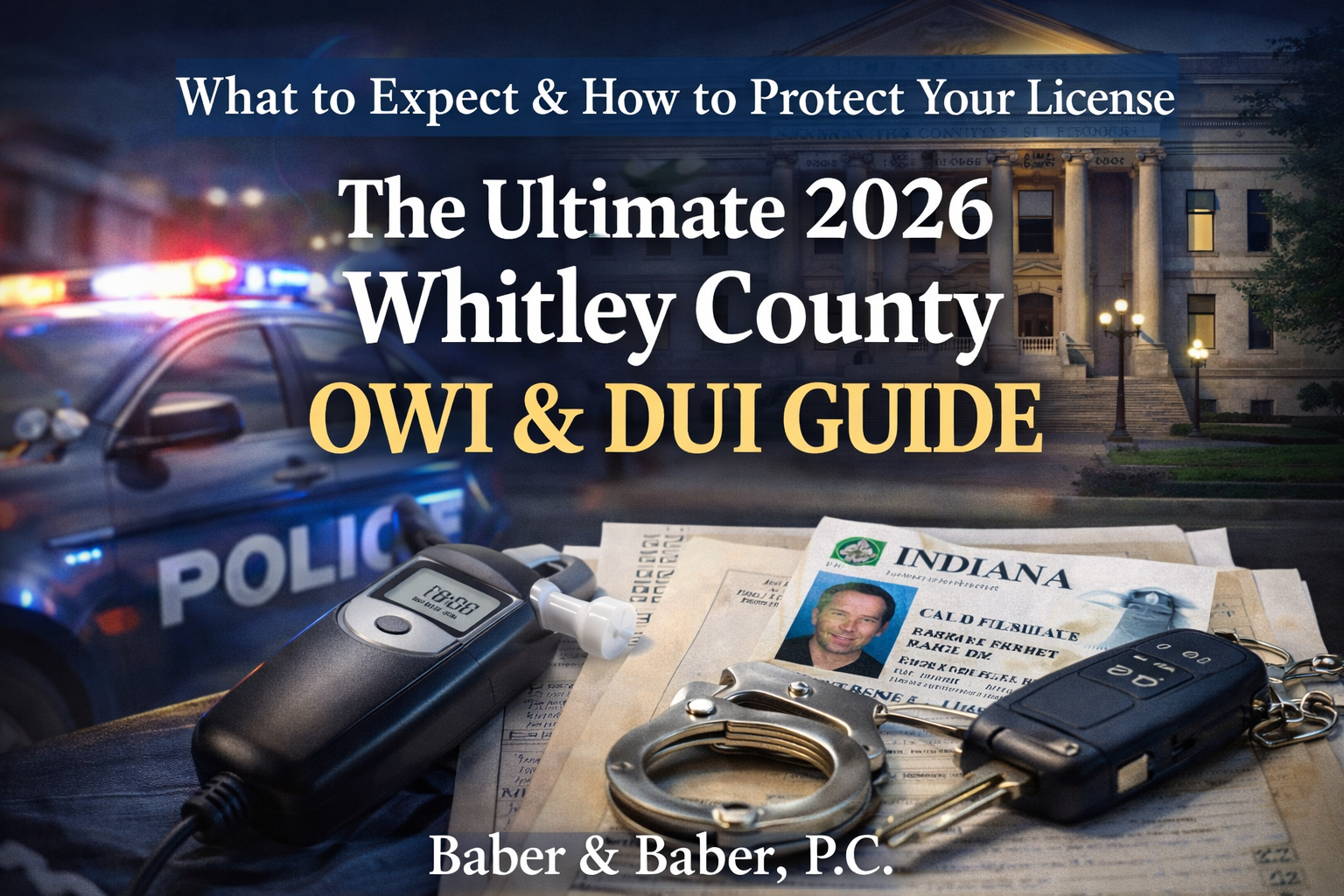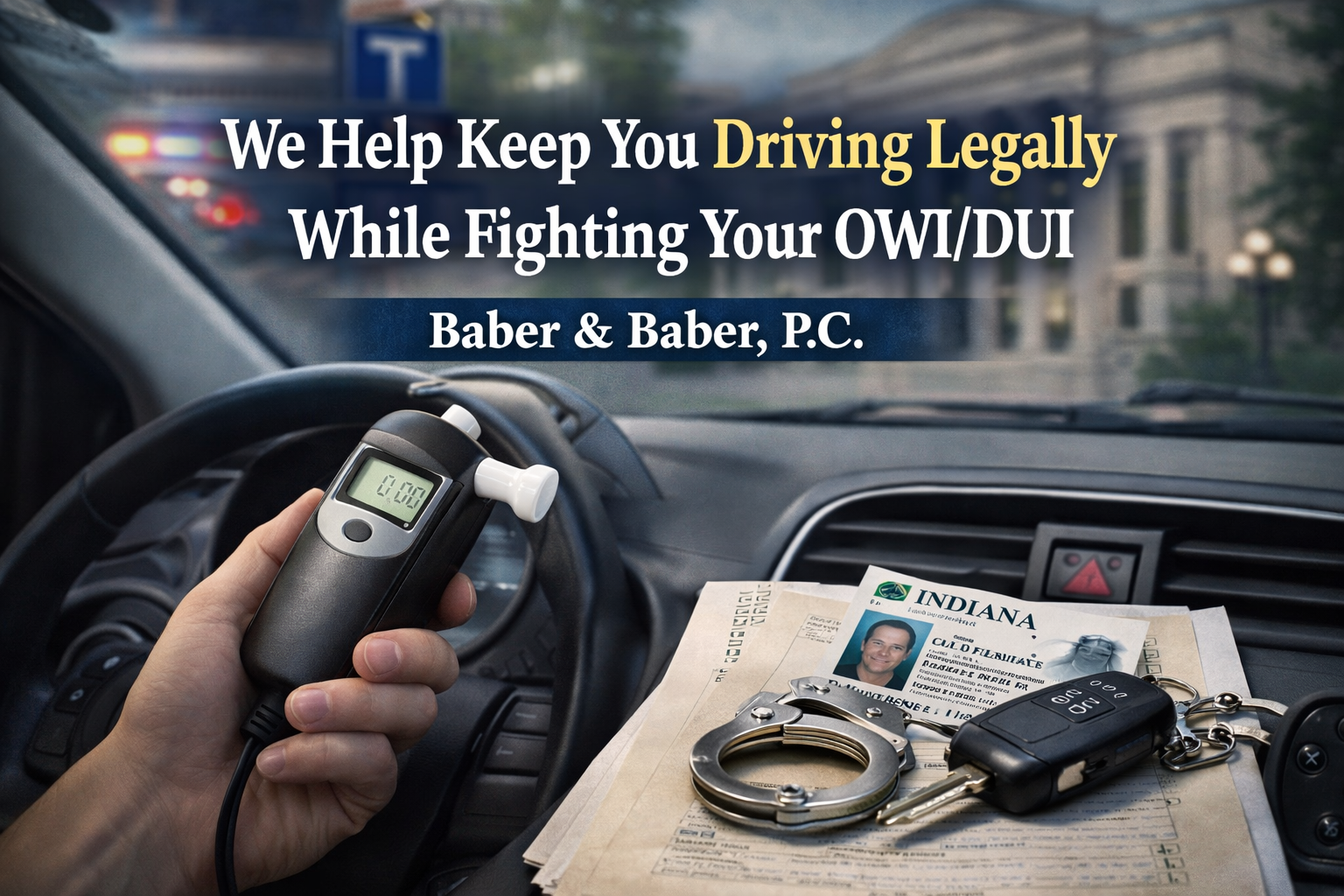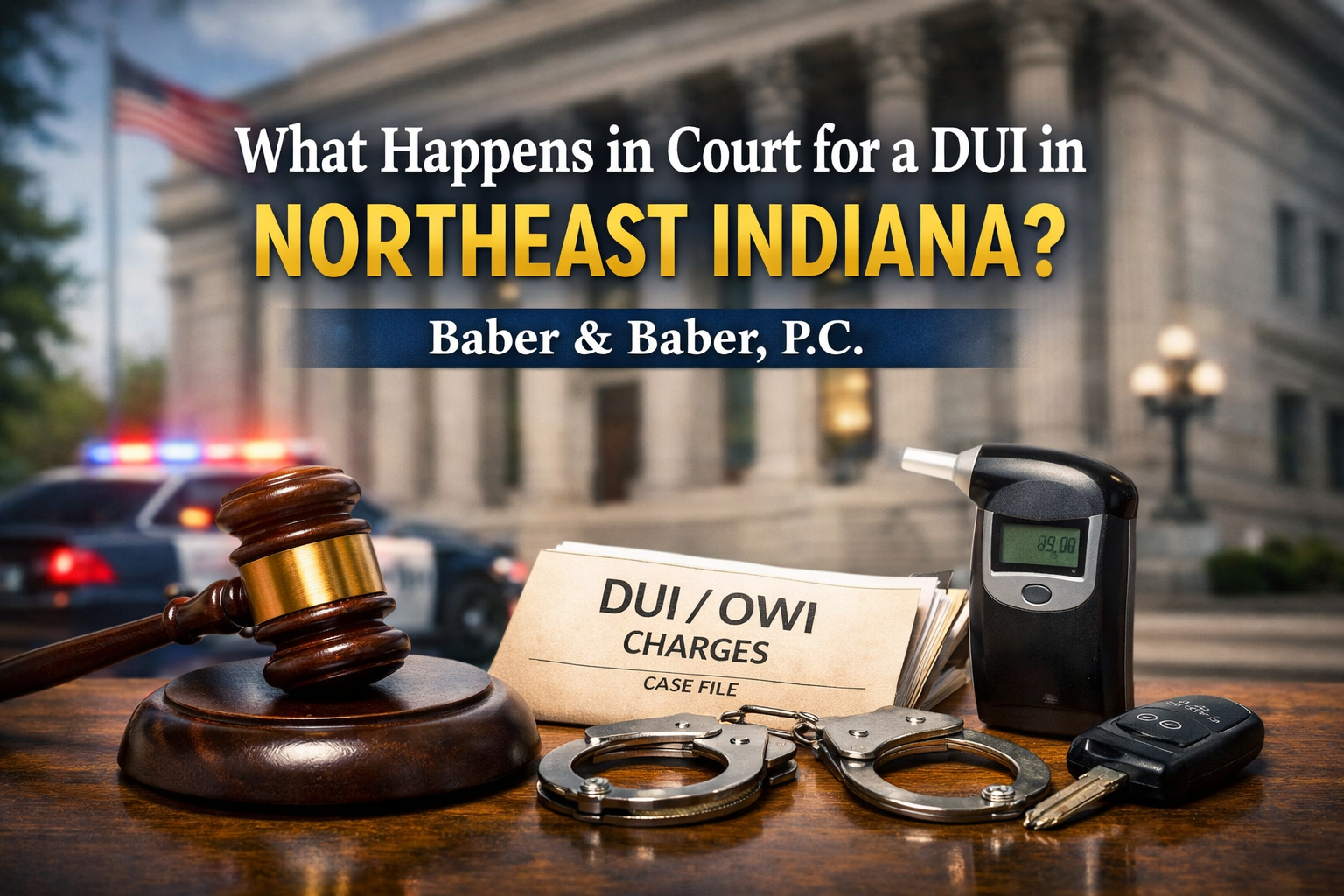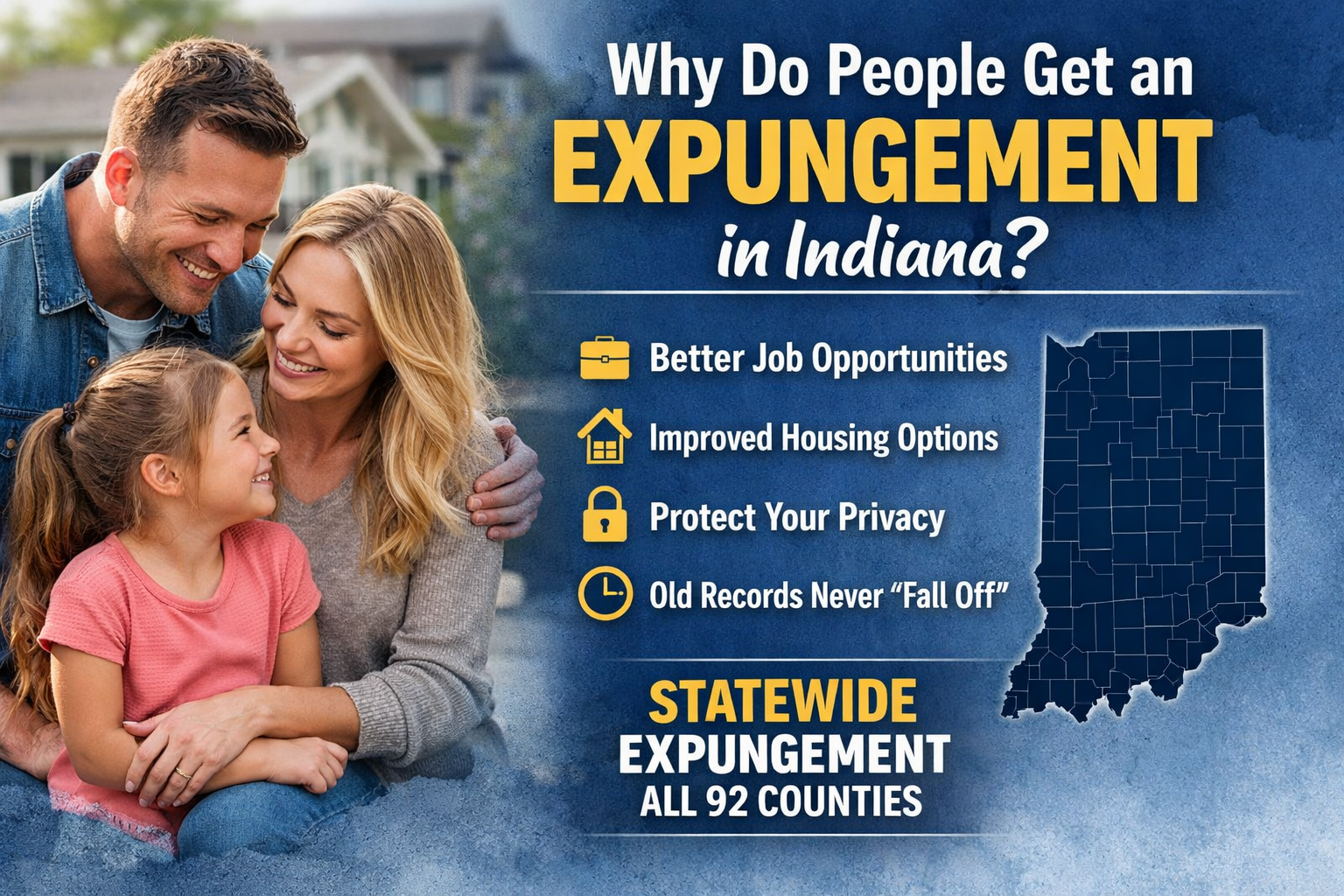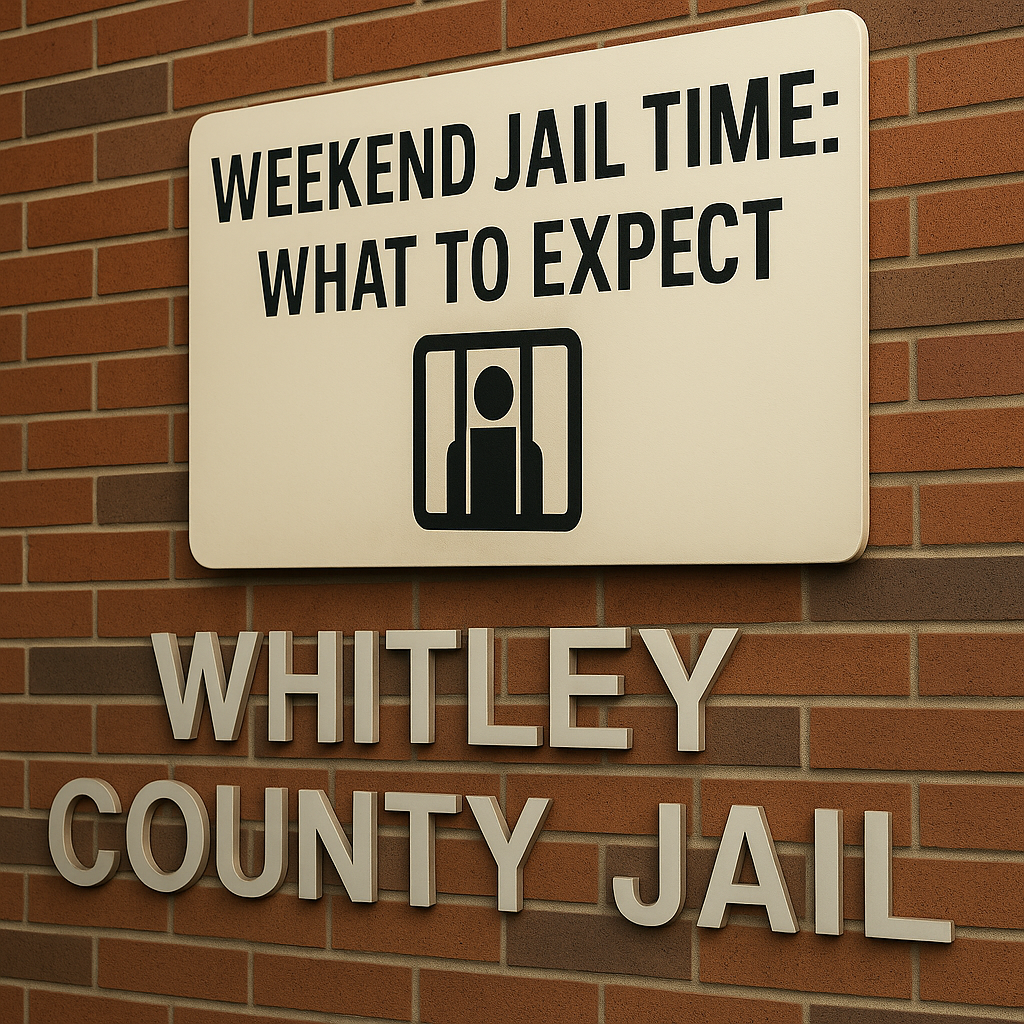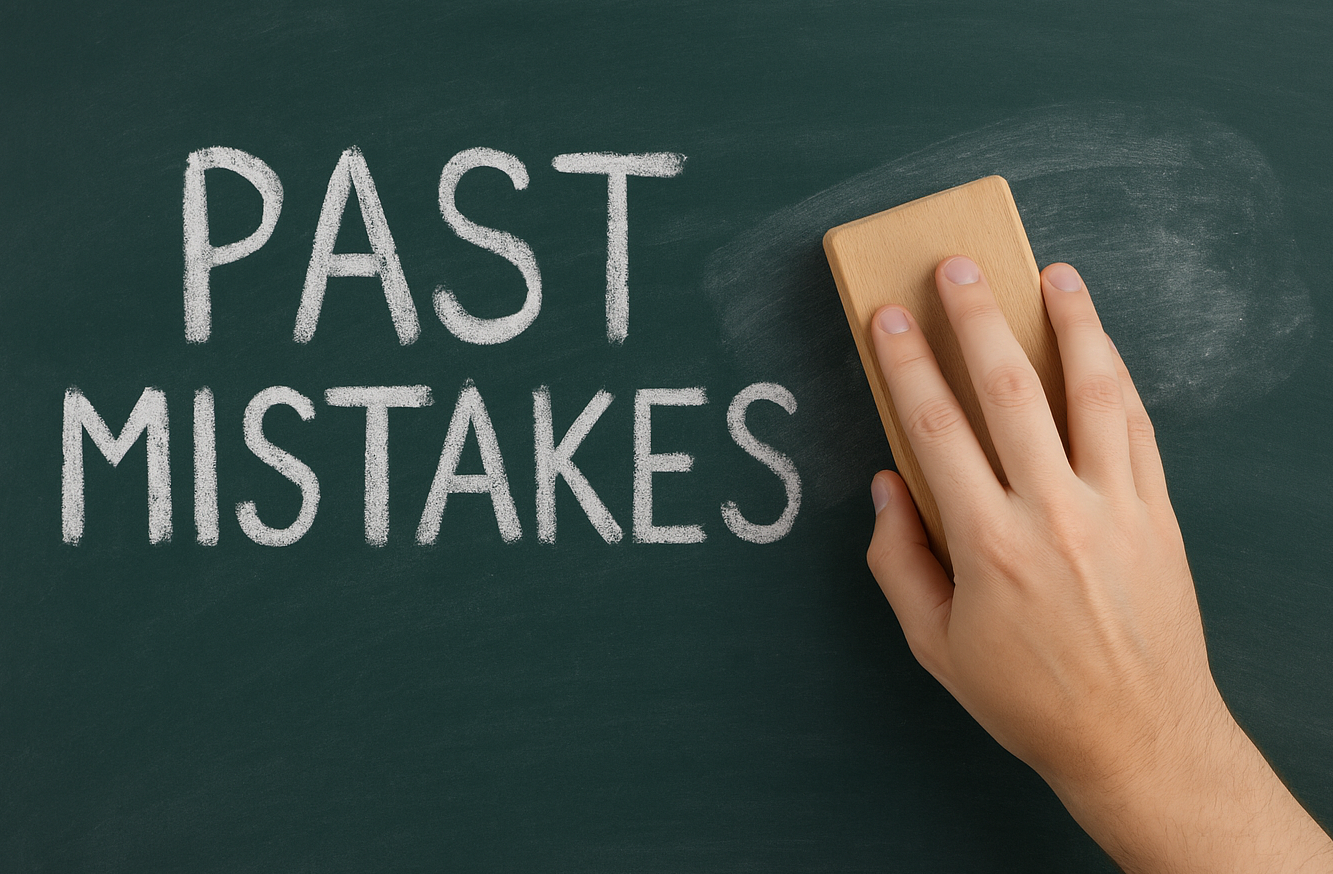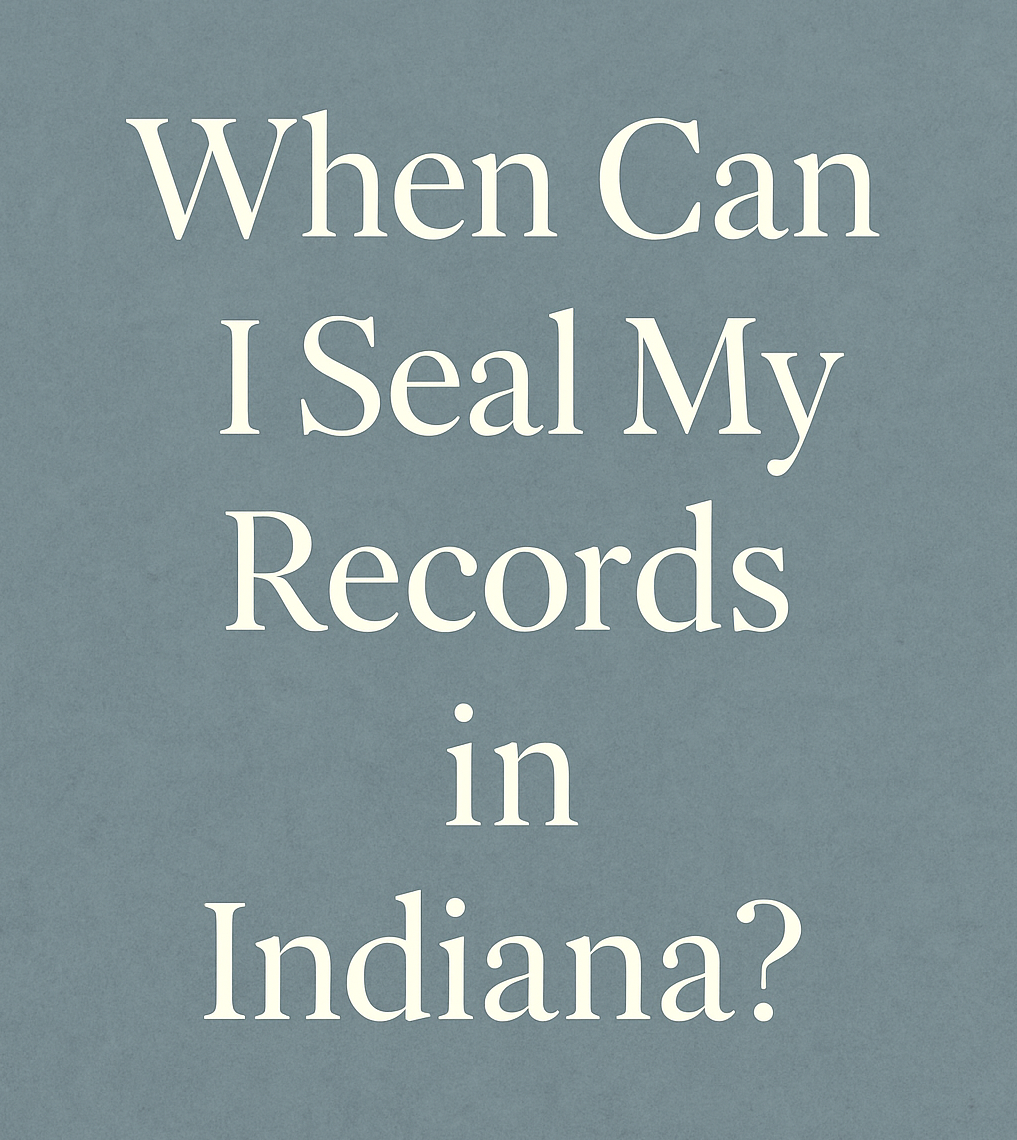Understanding the Difference Between a Misdemeanor and a Felony in Indiana
Zach Baber • July 9, 2025
If you or someone you care about is facing criminal charges in Indiana, one of the first questions you may ask is: “Is this a misdemeanor or a felony?”
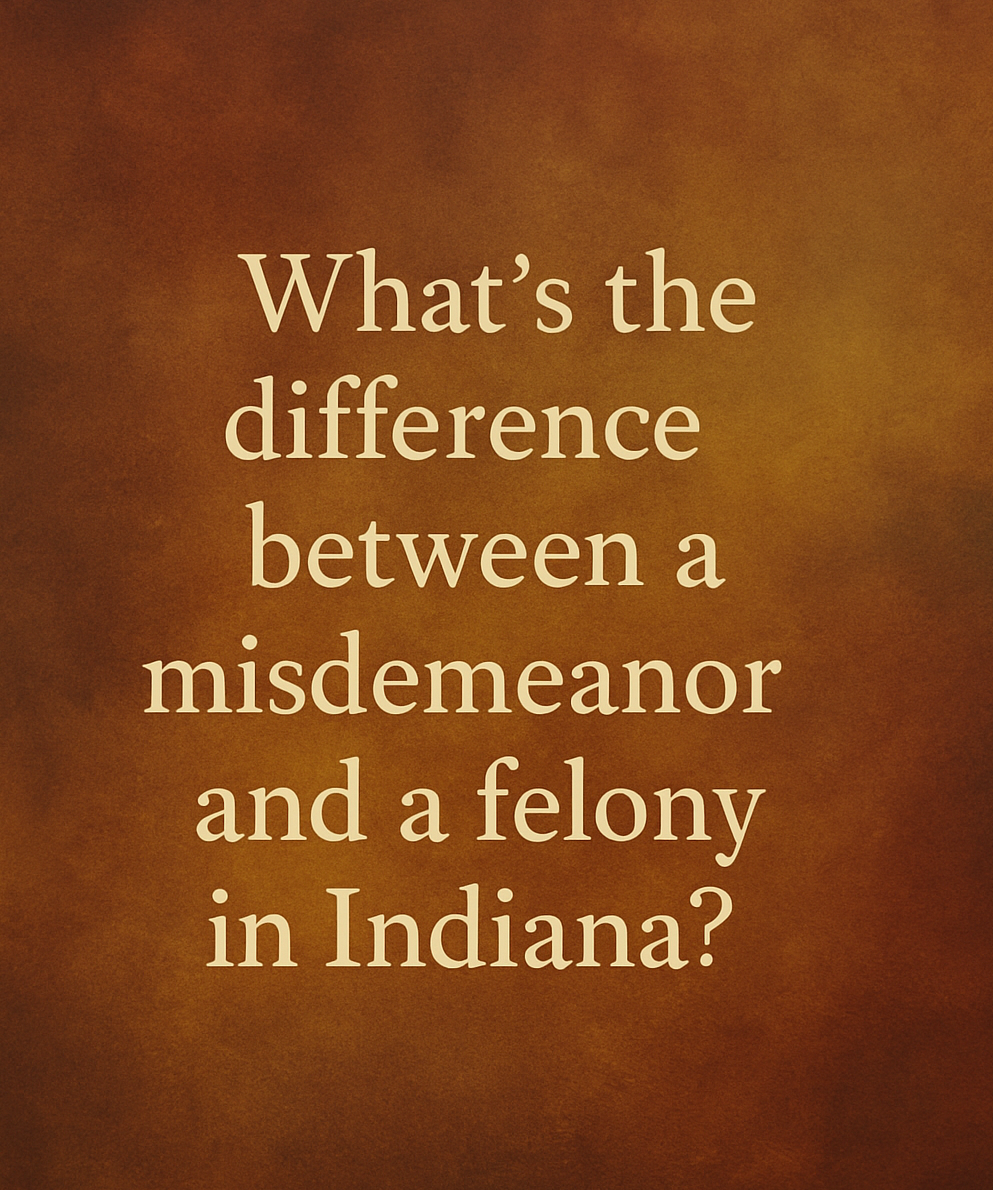
It’s a fair and important question.
There are three classes of misdemeanors in Indiana:
Class A Misdemeanor
What Is a Felony in Indiana?
Felonies in Indiana are divided into six levels:
Can a Misdemeanor Become a Felony?
In Whitley County and surrounding areas, both misdemeanor and felony cases are handled through the Whitley County Circuit and Superior Courts, located in Columbia City.
Final Thoughts
Note: This article is for general informational purposes only and does not constitute legal advice. For help with your specific situation, consult with a qualified attorney.
The difference between a misdemeanor and a felony in Indiana can impact everything from jail time to long-term consequences like job eligibility and civil rights.
This article explains the basics so you can better understand what you're dealing with.
What Is a Misdemeanor in Indiana?
A misdemeanor is generally considered a lower-level criminal offense in Indiana.
While still serious, misdemeanors carry less severe penalties than felonies.
There are three classes of misdemeanors in Indiana:
Class A Misdemeanor
- Up to 1 year in jail
- Up to $5,000 in fines
- Examples: Battery, theft under a certain dollar amount, resisting law enforcement
- Up to 180 days in jail
- Up to $1,000 in fines
- Examples: Public intoxication, disorderly conduct
- Up to 60 days in jail
- Up to $500 in fines
- Examples: Minor possession of alcohol, reckless driving
What Is a Felony in Indiana?
A felony is a more serious offense and usually comes with longer jail or prison time, higher fines, and more lasting consequences.
Felonies in Indiana are divided into six levels:
- Level 1 Felony – Most severe (20–40 years in prison)
- Level 6 Felony – Least severe (6 months to 2.5 years)
- Level 1: Dealing large amounts of drugs
- Level 3: Aggravated battery, armed robbery
- Level 6: Low-level theft, possession of a controlled substance
Felony convictions can result in the loss of civil rights, like voting or owning a firearm.
They can also affect professional licenses and government benefits.
Can a Misdemeanor Become a Felony?
Yes.
In Indiana, certain factors can elevate a misdemeanor to a felony, including:
- Repeated offenses (e.g., multiple OWIs/DUIs)
- Causing serious bodily injury
- Use of a deadly weapon
- Involvement of a child or vulnerable adult
Local Tip: Columbia City Criminal Defense Basics
Regardless of the charge level, your first court appearance will likely be an initial hearing, where you'll be informed of the charges and your rights.
The severity of the charge (misdemeanor vs felony) will directly affect bail, legal timelines, and plea options.
Final Thoughts
Understanding the difference between a misdemeanor and a felony in Indiana can help you make informed decisions - not just in court, but in life.
Legal language can be confusing.
This breakdown is here to help you cut through that confusion and get clarity on what your charges actually mean.
Note: This article is for general informational purposes only and does not constitute legal advice. For help with your specific situation, consult with a qualified attorney.
📍 Columbia City, Indiana
Call us at 260.244.4422 or schedule a consultation online.



